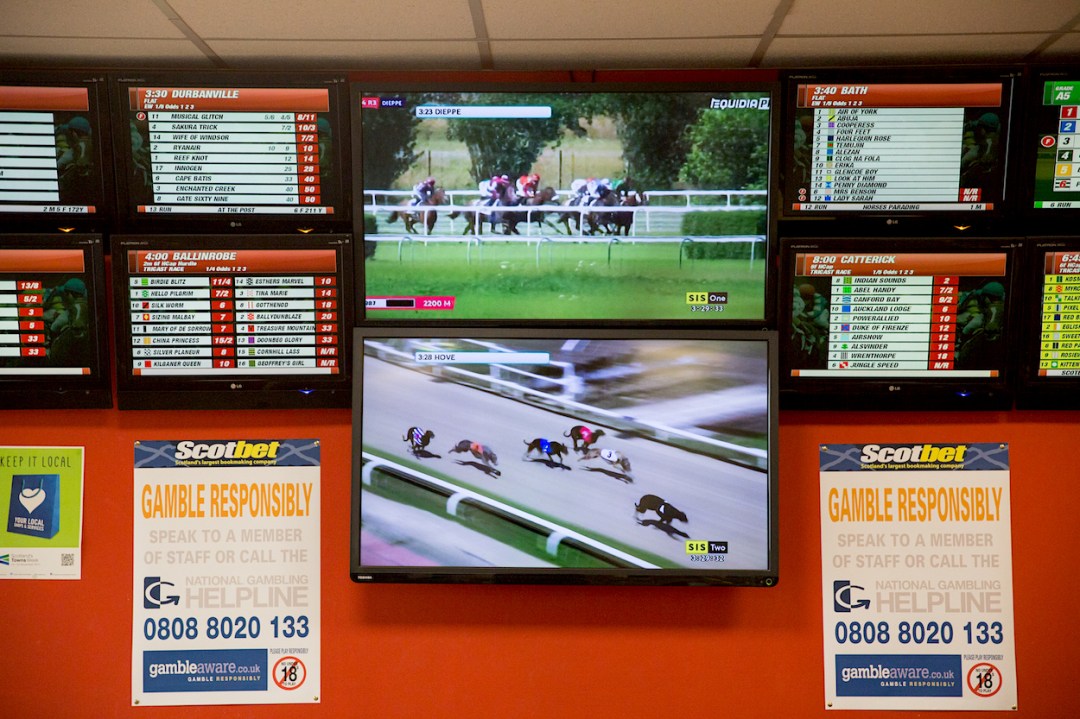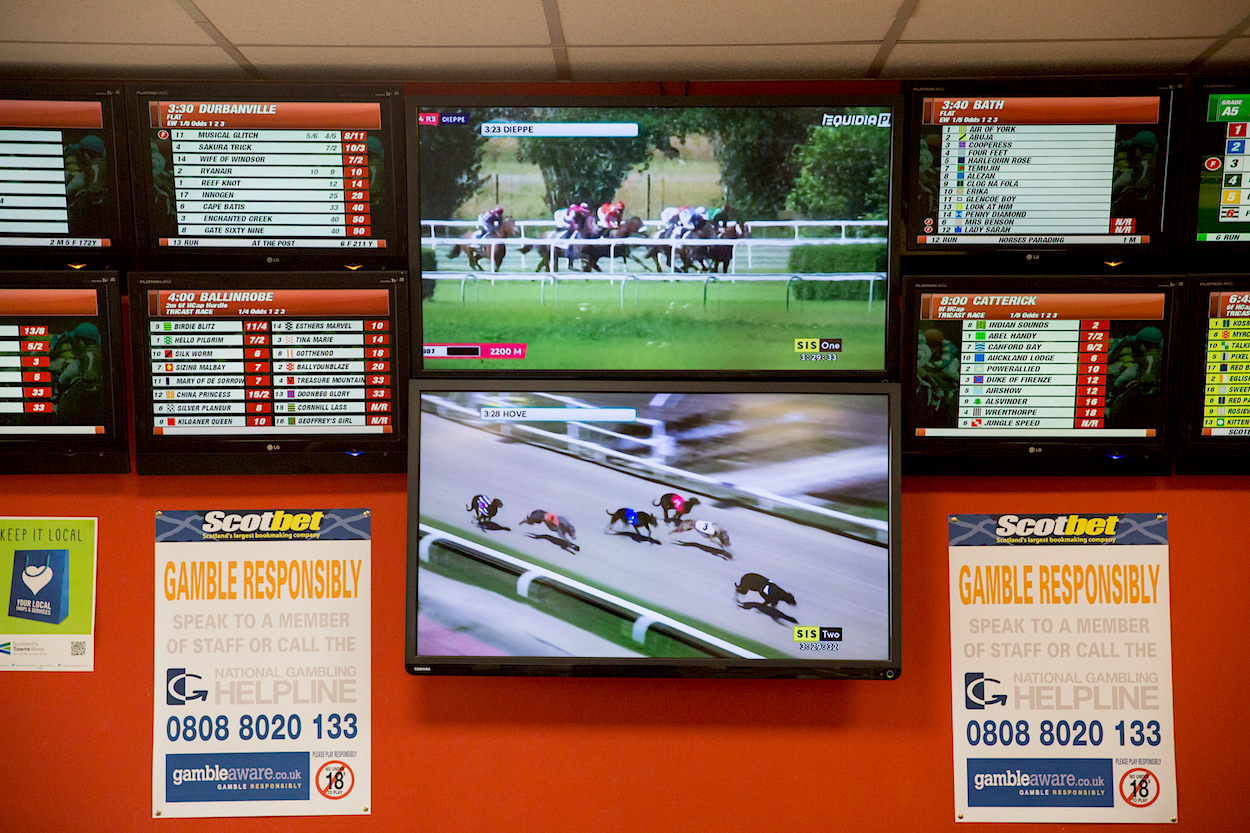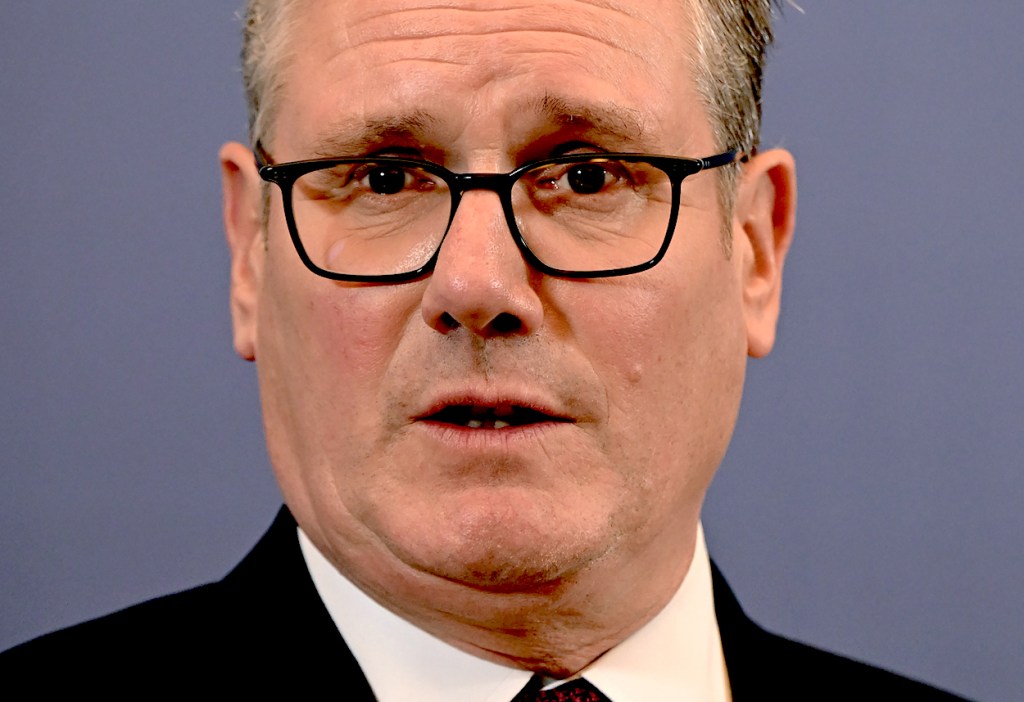Of all the industries you’d think would know how to avoid a shakedown, the gambling sector is if anything overqualified. Centuries of experience working with crooks, debt collectors and hapless punters should surely have provided all the training needed to make an offer nobody can refuse.
Alas, Rachel Reeves appears to have ensnared even the bookies in her tax grab. With the Chancellor seeking unsympathetic victims for her impending Budget, the best line the gambling industry could find was that further taxes on its activities would force it to shutter some of its tastefully-decorated high street outlets.
‘We’re going to lose the whole retail business,’ Betfred’s chief executive Joanne Whittaker told the Times over the weekend, adding that it was neither ‘scaremongering’ nor ‘alarmist’ to claim that 1,300 shops and 7,000 jobs were on the line.
Evoke, which owns William Hill, similarly said it would axe as many as 200 shops if Reeves’s tax rises go through, accounting for up to 15 per cent of its estate and 1,500 jobs. Predicting closures of Ladbrokes and Coral shops, Entain chief executive Stella David even ominously commented that the firm might have to ‘consider its investment level in the UK.’
All this was in response to speculation that Reeves may be about to increase duties on sports betting from 15 to 30 percent, with machine and online slot duties due to increase from 20 to 50 percent. By the reckoning of those backing the move, this will raise £3.2 billion.
Since the austerity years, gambling shops have become a visible symbol of a Britain down on its luck. While the number of physical premises have declined – driven by a shift to online gambling – those remaining are frequently located in prominent high street positions with extended opening hours, and as the University of Bristol found in 2021, they are 10 times likelier to be in poor places than rich ones.
The stores have also become rather infamous for being targeted by criminals, a consequence of their proximity to poverty and nightlife combined with the industry’s controversial policy of single-manning many of its stores. In one case, a staffer was murdered at a Ladbrokes in South London by an aggrieved punter; a few years later a young female worker was sexually assaulted and left for dead at another of the chain’s shops in Leicester.
The sorry state of Britain’s betting shops mirrors that of the high street generally, as online business has taken over. Remote gambling accounted for £6.9bn in gross gambling yields for the year to March 2024, compared to £4.6bn in offline betting, according to the Gambling Commission. Fred Done, the founder of Betfred, reckons there’s only 20 years left for physical betting shops.
Even without the tax rises, many are already unviable. Done claimed that 300 of his shops are losing money, and a tax rise of as little as 5 per cent would jeopardise 130 more. Only this month, Paddy Power announced it is closing 57 shops across the UK and Ireland, having decided they are no longer worth running.
Accelerating these inevitable closures, then, seems unlikely to be Reeve’s worst offence in office, but where lobbyists are more convincing is in quibbling just how much tax revenue Reeves would raise through her sharp increases in gambling duties.
The predicted £3.2bn estimate of extra tax revenue comes from the Institute for Public Policy Research, whose report on the matterrather glosses over the possibility that the gambling market will shrink if bookies are offering less attractive odds. Studies are cited, of course, but it’s hard to evade the basic economics that people buy less when things cost more.
More bemusing still is that the paper acknowledges much of the tax revenue would be taken from problem gamblers, who account for an unfair share of the betting. Given most of the public’s contempt for gambling is due to the exploitation of addicts, there’s something perverse in the implicit recommendation that we should tax them more harshly to lift the two-child benefit cap.
Then there is the prospect of an increase in illegal activity, which while being a common argument used by sin industry lobbyists is plausible in this case. Rising VPN adoption and technical nous among consumers, some of it a response to the Online Safety Act, means that it’ll become ever easier for consumers to place their bets outside the gaze of HMRC.
These arguments have some sense. But still, I can’t mourn the death of the betting shop. We deserve more seemly ways of frittering away our money.








Comments